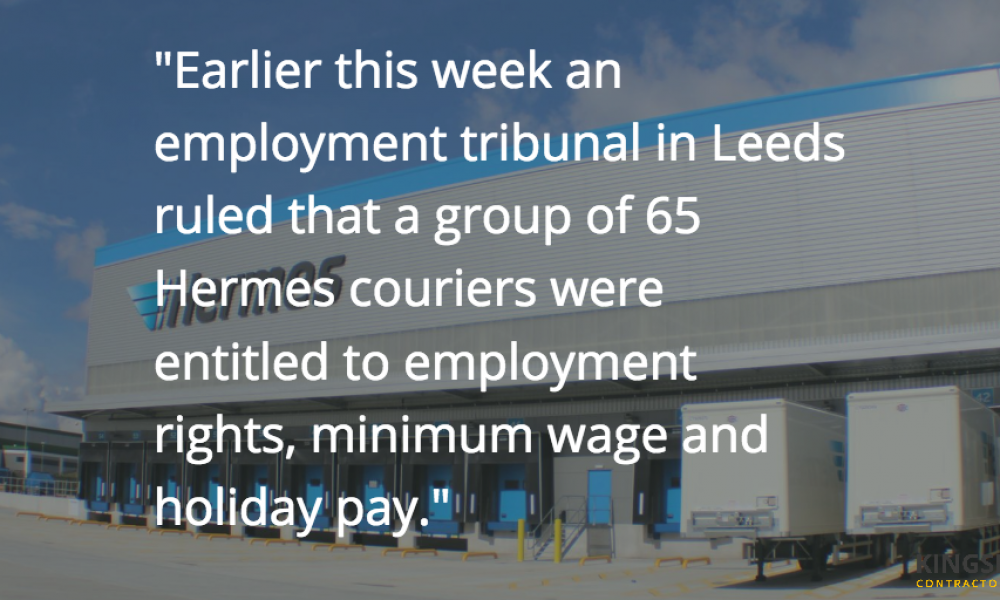UK court rules Deliveroo couriers are self-employed
The Independent Workers’ Union of GB (IWGB) has been embroiled in court battles since 2017 to have Deliveroo riders classified…
Hot on the heels of the landmark Supreme Court decision that classified a Pimlico Plumbers contractor as a worker, thereby…

Hot on the heels of the landmark Supreme Court decision that classified a Pimlico Plumbers contractor as a worker, thereby allowing him access to working rights previously only accessible to the traditionally’ employed, comes another ruling that could further blur the lines between workers and the self-employed.
Earlier this week an employment tribunal in Leeds ruled that a group of 65 Hermes couriers were entitled to employment rights, minimum wage and holiday pay. In what amounts to one of the most significant victories against what some have called the exploitation of gig economy workers, the couriers are also now able to reclaim unlawful deductions from their wages that had arisen as a result of their classification as self-employed.
The finding has a wider reach than might first appear obvious. Although these 65 couriers bought the claim, the ruling is likely to have a significant impact on the rights of the estimated 14,500 other freelancers who work for Hermes too.
Whilst many choose freelance or gig work for the flexibility and independence its working model offers, and whilst self-employment in general continues its rapid rise, it is unquestionable that the rights of those who are not employed along traditional lines must be recognised and looked after.
Hermes, for their part, indicated that they would be appealing against the judgement. A spokesman noted: We will carefully review the tribunal’s decision, but we are likely to appeal it given that it goes against previous decisions, our understanding of the witness evidence and what we believe the law to be.
Without doubt, precedent has been set. The Hermes ruling mirrors verdicts in earlier cases brought against the likes of Uber, Addison Lee, City Sprint, Excel, and eCourier. Legal action against three Amazon delivery companies on the same principles is also underway.
In February, on the back of the Taylor Report, the Prime Minister announced a number of new labour policies designed to uphold workers’ rights but stopped short of changing the law on the use of self-employment, pledging only to consult on possible changes.
What awaits in the future remains to be seen, but the tide is clearly turning. Whilst the freelancer and contractor model is very much the future of employment, the exploitation of vulnerable workers is not.
History has shown that legislation often takes a while to catch up to significant changes in the employment landscape, and that seems to be what’s happening at the moment. We’ll await the next development with interest.